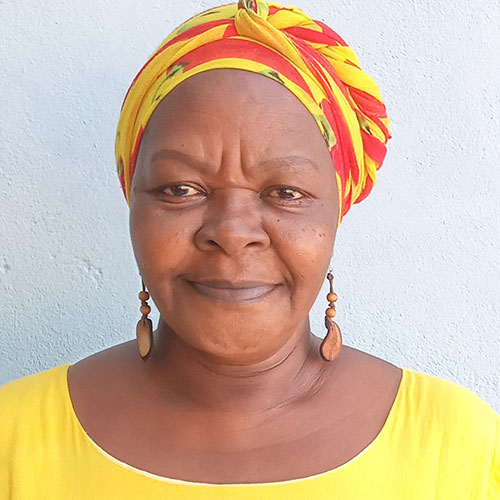Notice funds human rights projects in areas affected by the Fundão Dam collapse
Fundo Brasil will donate R$ 800.000,00 for project proposals aimed at locations recognized as impacted by the collapse of the Fundão Dam in Minas Gerais


Fundo Brasil de Direitos Humanos (‘Human Rights Brasil Fund’, in English) invites groups, collectives and civil society organizations working to combat violations and defend human rights in the Bacia do Rio Doce (‘Rio Doce Basin’) to submit proposals for support, according to the notice.
Fundo Brasil believes that the work of these groups must be strengthened so they can continue fighting against setbacks, ensuring rights, and rebuilding spaces for participation and influence in the democratic arena.
To achieve this, it is essential to strengthen the human rights sector, amplify the voices advocating for equality and equity, and promote engagement in addressing inequalities and violence. Thus, working towards strengthening democracy and building pathways that advance the defense of human rights is crucial.
Promotion and Defense of Human Rights
The notice aims to support projects that seek to strengthen the institutional capacity of groups, collectives, and/or organizations focused on addressing violations, defending rights and promoting human rights in their various approaches.
Institutional strengthening is essential for organizations to operate effectively within their contexts, ensuring the defense of rights and combating violations. To achieve this, it is necessary to address the needs of the beneficiary groups by supporting their organizational structure, contributing to their institutional development, enhancing their actions and generating direct impact in their operating territories.
This way, institutional support may cover the maintenance of teams responsible for political, administrative, financial, representation, and qualified political advocacy management, organizational communication, and fundraising, among other necessary actions and activities for each collective’s mission.
This financial resource is flexible, allowing selected organizations the autonomy to decide how best to use it, considering the notice’s objectives. Proposals should focus on the institutional strengthening of groups, collectives, and organizations working on the defense of rights, such as those that:
- Defend the rights of women, with special attention to Black, Indigenous, traditional populations, LGBTQIAPN+ communities and those with disabilities;
- Act in the defense and strengthening of the rights of Indigenous peoples and traditional communities;
- Promote mobilization and training for public policy advocacy;
- Address environmental racism and various forms of violence against socio-environmental rights defenders, and raise awareness in public debates and democratic spaces about the demands for climate justice resulting from the unequal impacts of climate change in urban and rural areas;
- Focus on combating racism and supporting anti-racist struggles, promoting the rights of traditional religious groups, and valuing African and Afro-Indigenous religions, as well as combating forms of violence perpetrated, encouraged, or not repressed by the state;
- Seek to defend the right to health, especially in terms of food security and reducing maternal mortality, addressing public health challenges arising from environmental contamination and disasters;
- Promote the dissemination of strategic tools such as communication for greater visibility of struggles and advocacy on national and international human rights mechanisms and spaces;
- Work on the defense of youth rights, with a special focus on state violence and the genocide of Black youth.
The proposals that do not fall into these specific categories are also welcome, as long as they are considered strategic and relevant by the participating organizations.
It is crucial that projects address racial, ethnic, and gender dimensions.
Financial support
Twenty organizations, groups, or collectives will be supported with up to R$40,000.00 (around US$ 7,300.00) each, totaling up to R$800,000.00 (around US$ 146,870.00) in donations. The project execution period must be no longer than 12 months from the date of receiving the funds.
Which Regions Can Participate?
The support will be directed to 46 municipalities, including Indigenous lands, quilombola territories* and other traditional communities recognized as affected by the Fundão Dam collapse.
*Quilombola Territories are regions in Brazil traditionally inhabited by descendants of enslaved Africans who escaped from plantations and formed their own communities, known as quilombos. These areas are recognized for their cultural, historical, and social significance, and they often have unique customs and practices rooted in African heritage. The Brazilian government officially acknowledges and protects these territories to preserve their way of life and cultural identity.
Results’ Announcements
Proposals must be submitted by August 26th by 6 PM (Brasília time). The results will be announced from October 23rd on the foundation’s website and social media.
To apply, click here.
What Happened with the Fundão Dam?
On November 5th, 2015, in Mariana, Minas Gerais, 40 million cubic meters of mining waste were released due to the collapse of the Fundão Dam, operated by Samarco.
The disaster is considered the worst in the country’s history in terms of environmental impact. The Rio Doce, which spans 230 municipalities in Minas Gerais and Espírito Santo, was inundated with sludge. A total of 19 people died buried.



